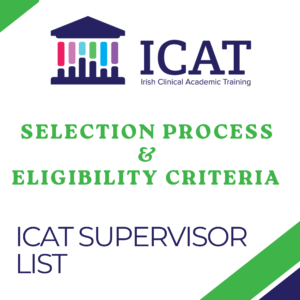Supervisor Database Search
Guidance for ICAT Supervisors
Supervisor Database
Full NameDr Harriet Schellekens
Anatomy & Neuroscience
University College Cork
Webpage:apc.ucc.ie
Email hidden; Javascript is required.
- neuroscience and mental health
- nutrition
- clinical trials
- Medicine
- Psychiatry
- General Practice
- Occupational Medicine
- Paediatrics
- Public Health
- Endocrinology
- Gastroenterology
- Neurophysiology
- Neuropsychiatry
- Pharmacology
- Physiology
My current research is focused on the translational impact of diet and nutrition and the gut microbiome on human health and physiology, in particular metabolic health, appetite, food-motivated behavior and mental health across the lifespan. I have contributed to the field of obesity and the microbiome (van de Wouw, et al., 2017- PMID: 28356427; Torres-Fuentes, et al., 2015-PMID: 24621068; Torres-Fuentes et al., 2017-PMID: 28844808) and the diet-microbiome-gut brain axis in neuropsychiatry (Berding, et al., 2021-PMID33693453; Sandhu, et al, 2016-PMID: 27832936; Lach et al., 2018-PMID: 29134359; Adan et al, 2019-PMID: 31735529). My laboratory investigates the mechanism of microbiota-gut-brain interactions and immune-neuroendocrine signaling underlying the complex relationship between food, mood and stress and I have a particular interest in the role of ghrelin receptor as a mediator of microbiota’s impact on homeostatic and hedonic eating behavior (Howick et al., 2017-PMID: 28134808; Schellekens et al.,2012_PMID: 22749794; Schellekens, et al., 2013-PMID: 23374722). As evident from my publications, I use mechanistic and translational studies, bridging basic and clinical aspects of neuroscience and nutrition, to investigate the link between metabolic disease (obesity and eating disorders) and mental health (stress, anxiety and depression), and the potential amelioration of both via microbiome targeted approaches. My research has been covered through several newspaper articles, including a recent full page spread on my research in the Irish Times.
Using in vitro and in vivo approaches, I am looking for PhD candidates interested in exploring the impact of the gut microbiome on homeostatic and hedonic appetite regulation and how this may be altered under conditions of metabolic disease and psychological stress. We hypothesize that the gut microbiome is an important regulator of appetite and eating behavior and now wish to investigate its potential in reward motivated eating behavior and food choice, underlying both stress-induced as well as metabolic changes driving obesity. The overall objective is to identify and validate novel dietary interventions to deliver real impact for novel strategies for metabolic and mental health. This is build on findings from our recent translational study, demonstrating beneficial effects of a novel isolated Bifidobacterium longum APC1472 for both metabolic and mental health. Supplementation reduced fasting blood glucose levels, normalized active levels of ghrelin, a hormone that signals hunger, and reduced the stress hormone cortisol, biomarkers which are altered in obesity (Schellekens H, et. al., EBioMedicine. 2021 Jan;63:103176). These findings reinforce the concept of the link between the gut microbiome, metabolic disease and mental health.
Prof Jens Walter
Prof Catherine Stanton
Dr Gerard Clarke
Prof John F Cryan
Dr. Siobhain O'Mahony

